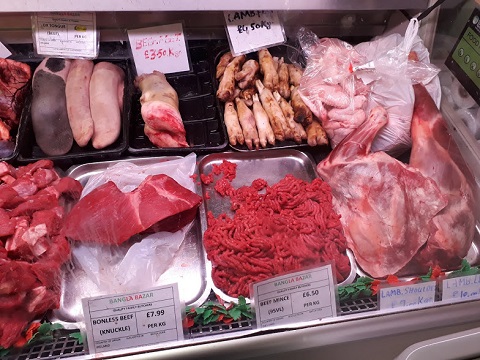Leading food-integrity researchers question influential data around red meat
An international team of scientists has challenged the latest data linking the consumption of unprocessed red meat to certain diseases.

The experts, including Professor Chris Elliott of IGFS, have called on the influential Global Burden of Diseases, Injuries and Risk Factors Study (GBD) to publish the evidence behind its most recent report.
In a letter published in The Lancet, six leading academics raise concerns about the dramatic differences in estimates of disease burden attributable to unprocessed red meat cited in GBD 2019 compared to the GBD 2017 study.
In writing the letter, the researchers are seeking to emphasise the importance of making research data publicly available so that guidelines and policies can be developed, based on a full understanding of the evidence.
The letter states: “The 2019 estimates of deaths attributable to unprocessed red-meat intake have increased 36-fold and estimates of DALYs attributable to unprocessed red meat intake have increased 18-fold.”
DALYs are an internationally recognised measure of the impact of diseases on populations.
Based on these findings, the GBD 2019 reported that red-meat intake contributes to the causation of a range of diseases including heart disease, breast cancer and stroke, in addition to diabetes and colon cancer.
It appears that the marked increase in the 2019 estimates is dependent on two assumptions: that the optimal intake of red meat is zero; and that risk rises sharply even with moderate consumption of red meat.
The authors of the letter are led by Prof Alice Stanton, of RCSI University of Medicine and Health Sciences, Dublin. The co-authors are: Prof Chris Elliott (Queen’s University Belfast); Prof Frederic Lerory (Vrije Universiteit Brussels); Prof Neil Mann (University of Melbourne); Prof Patrick Wall (University College Dublin); and Prof Stefaan De Smet (Ghent University).
Commenting, Prof Stanton said: “It is of considerable concern that the GBD 2019 study provides little or no evidence regarding the scientific basis for the assumption that moderate consumption of red meat results in sharp increases in risk of cancers, heart attacks and strokes.
“Given the substantial influence of GBD reports on worldwide, nutritional-policy decision making, it is of considerable importance that the GBD estimates are subject to critical scrutiny, and that they continue to be rigorously and transparently evidence-based.
“If the current public-health message advising moderate consumption of red meat as part of a healthy balanced diet is replaced by the message that any intake of red meat is harmful, then childhood malnutrition, iron-deficiency anaemia in women of child-bearing age and elderly fragility will greatly increase.”
Prof Elliott of IGFS said: “It is of huge importance that the evidence supporting the negative health impacts around red-meat consumption is made available. It is hard to understand how such conclusions could have been published without a strong evidence base that can be subjected to scientific scrutiny.”
Prof Nigel Scollan, Director of IGFS added: “Such a jump from the 2017 to the 2019 GBD estimates raises questions around the evidence behind the data. It’s immensely important that this kind of evidence is transparent and publicly available, especially when it will have a major bearing on international public health.”
The letter further recommends that the GBD 2019 dietary-risk estimates are not used in any national or international policy documents until comprehensive independent peer reviews have been conducted of the evidence underpinning the revised estimates.
The letter can be read here: 36-fold higher estimate of deaths attributable to red meat intake in GBD 2019: is this reliable? - The Lancet

Media
For futher information, contact u.bradley@qub.ac.uk
